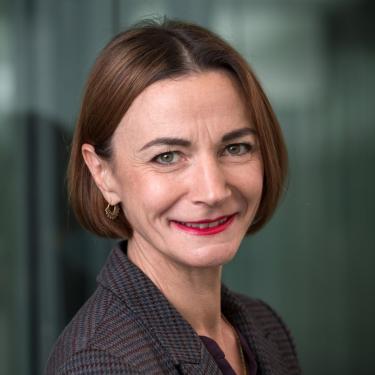The subject is a constant hot topic: The digitalization is fundamentally changing science and society. This process challenges existing paradigms, enables novel approaches for research and teaching, and requires new competences in a rapidly changing society. It is the duty of all scientific disciplines and society as a whole to critically reflect on and shape these developments. This is why the Digital Society Initiative (DSI) of the University of Zurich was launched in September 2016.
The DSI provides an academic platform for promoting critical, interdisciplinary reflection and innovation on all aspects of the digitalization of society and the sciences. It aims at reflecting and shaping the rapidly advancing digitalization, which is subjecting society, democracy, economy and science to a fundamental change. In this way, the DSI strengthens Zurich as a hub for digitalization.
The DSI’s main goals
The main goal of the DSI is to critically reflect and design these processes in a future oriented manner and to position the University of Zurich nationally and internationally as a centre of competence for the critical examination of all aspects of the digital society. Interdisciplinary research teams of the DSI investigate these changes: The initiative links people and competences from science, economy, politics, and society, fosters the public discussion on risks and opportunities of digitalization. It strengthens the university’s capacities of reflection and research, develops recommendations for the digitalized society of the future, and discusses its insights with stakeholders.
Events for the public and for members
The DSI organizes so-called Brown Bag Lunches. These Lunches are presentations of current projects and new research results presented by members of the DSI network. In addition to these lunches on research topics, the DSI also aims to intensify an “exchange with the outside world” to become more visible and more readable, through events or co-operations with associations. Among others, the initiative contributed to the first and, so far, only Swiss Digital Day in Europe, taking place on November 21 of the past year with more than 150’000 visitors and 150’000 people experiencing the event digitally. At the main event in Zurich’s main railway station, the DSI presented itself to a curious public with various activities. To name but a few, researchers at the University of Zurich answered questions about digitalization in more than 15 short videos: What is blockchain? Which media will we use in ten years? How can human and artificial intelligence cooperate? Another contribution supported by the DSI were the five scientists presenting their research topics live on stage. In addition to numerous parties and as a highlight of the program, Rector Michael Hengartner and a member of the DSI’s board of directors, Abraham Bernstein, were also able to welcome the Federal Councillor Johann Schneider-Ammann.
Current projects
Currently, an interdisciplinary project is taking place at the Geographical Institute of the University of Zurich. It uses 3D simulations at the interfaces of geography, computer science and psychology to investigate how people move under stress in a virtual city. Or, in the health sector, research is conducted into the legal and ethical framework under which personal health data collected via mobile phone or tracker (small data) can be combined with impersonal, anonymous information (big data) to enable personal therapy. Another project tackles cybersecurity and ethics. The researchers of these project aim to create a reference curriculum for value-driven cybersecurity with a focus on industry-training, briefing packages for policy stakeholders, and a massive open online course (MOOC) on value-driven cybersecurity. Further to these projects, members of the DSI are consolidating several ongoing research projects that specifically address ethical issues of digitalization. Last but not least a group of scientists, politicians, and representatives of the civil society is working on a manifest on digital democracy, which was published on a website (http://digital-manifest.ch) and will allow interested parties to comment on it and sign a list of support.
Photocredit: © Universität Zürich; Frank Brüderli
About the author
Simona Cerrato is a member of the managing office of the Digital Society Initiative. She holds a Master of Social Arts in Art History from the University of Zurich.
Contact us
Can we put you in touch with a peer company or research institute? Do you need any information regarding your strategic expansion to Switzerland's technology and business center?
info@greaterzuricharea.com
